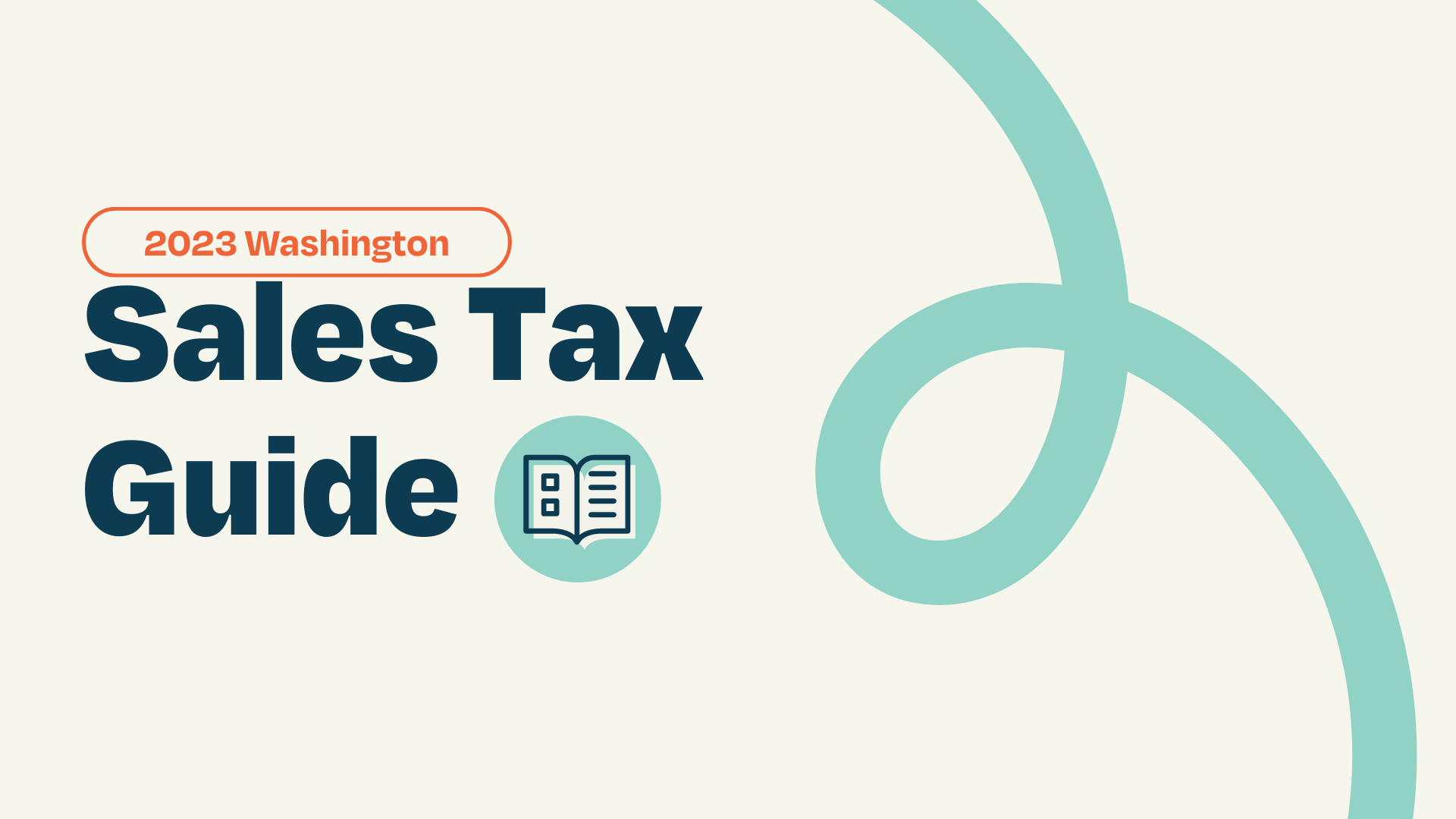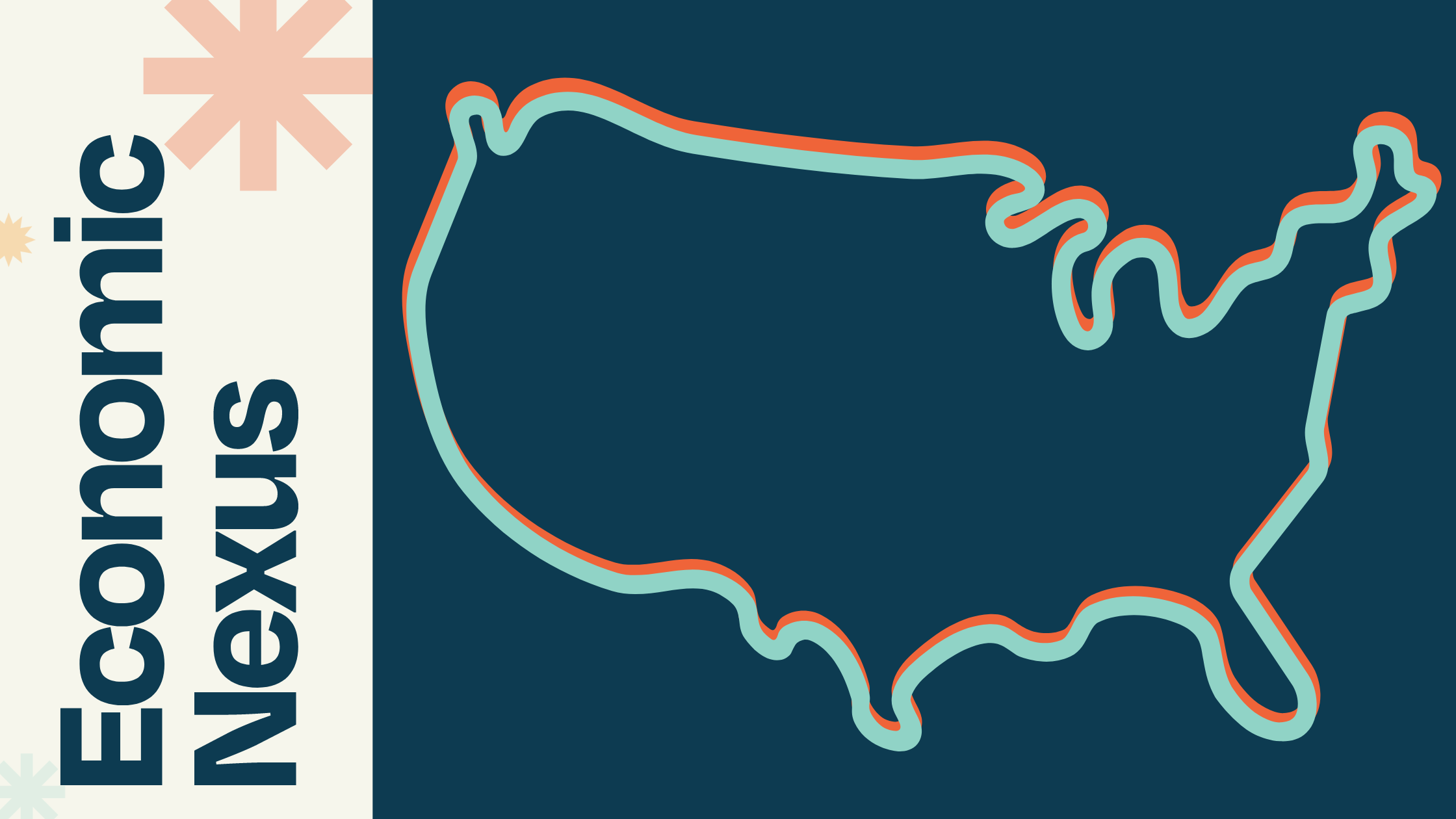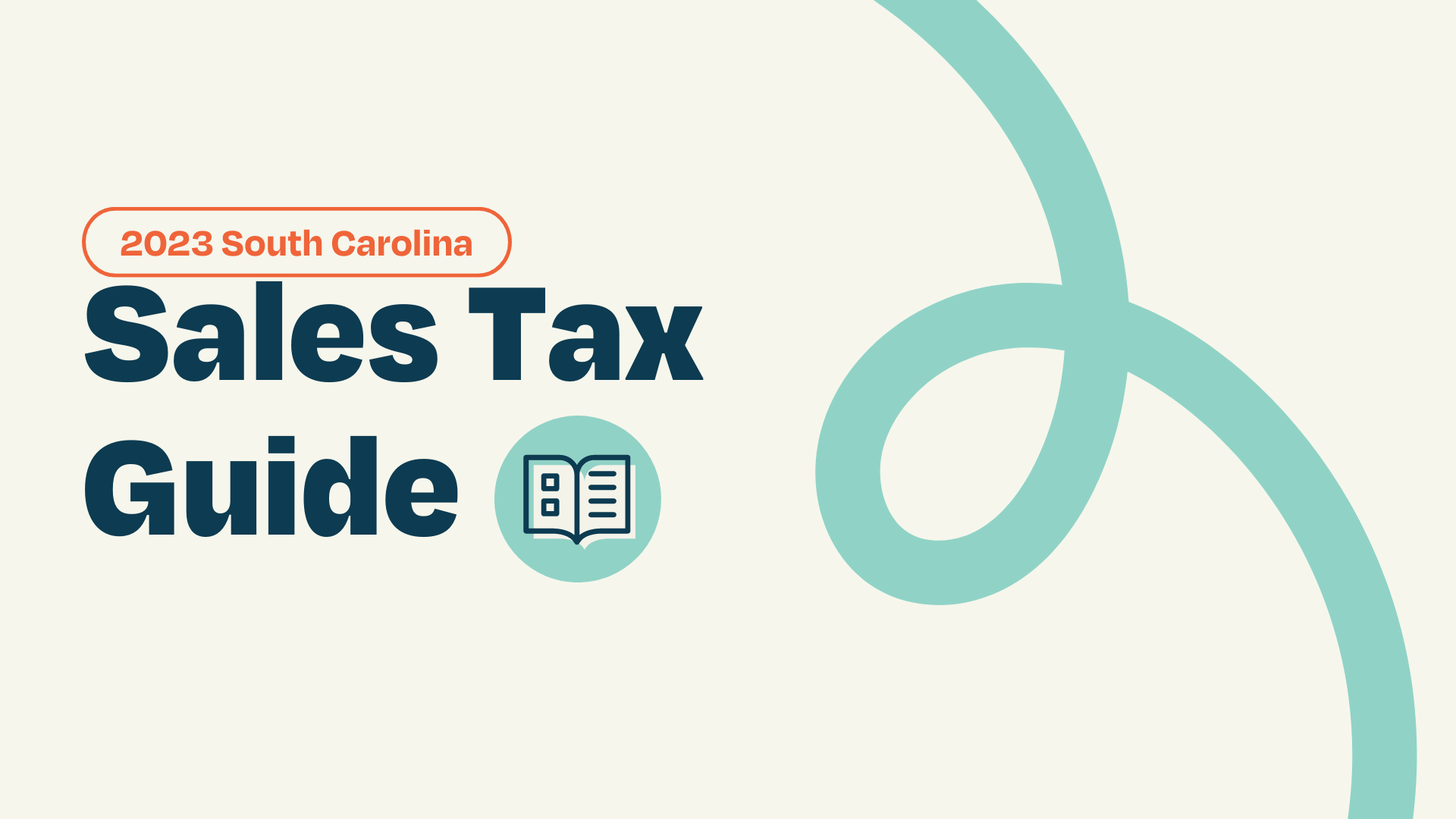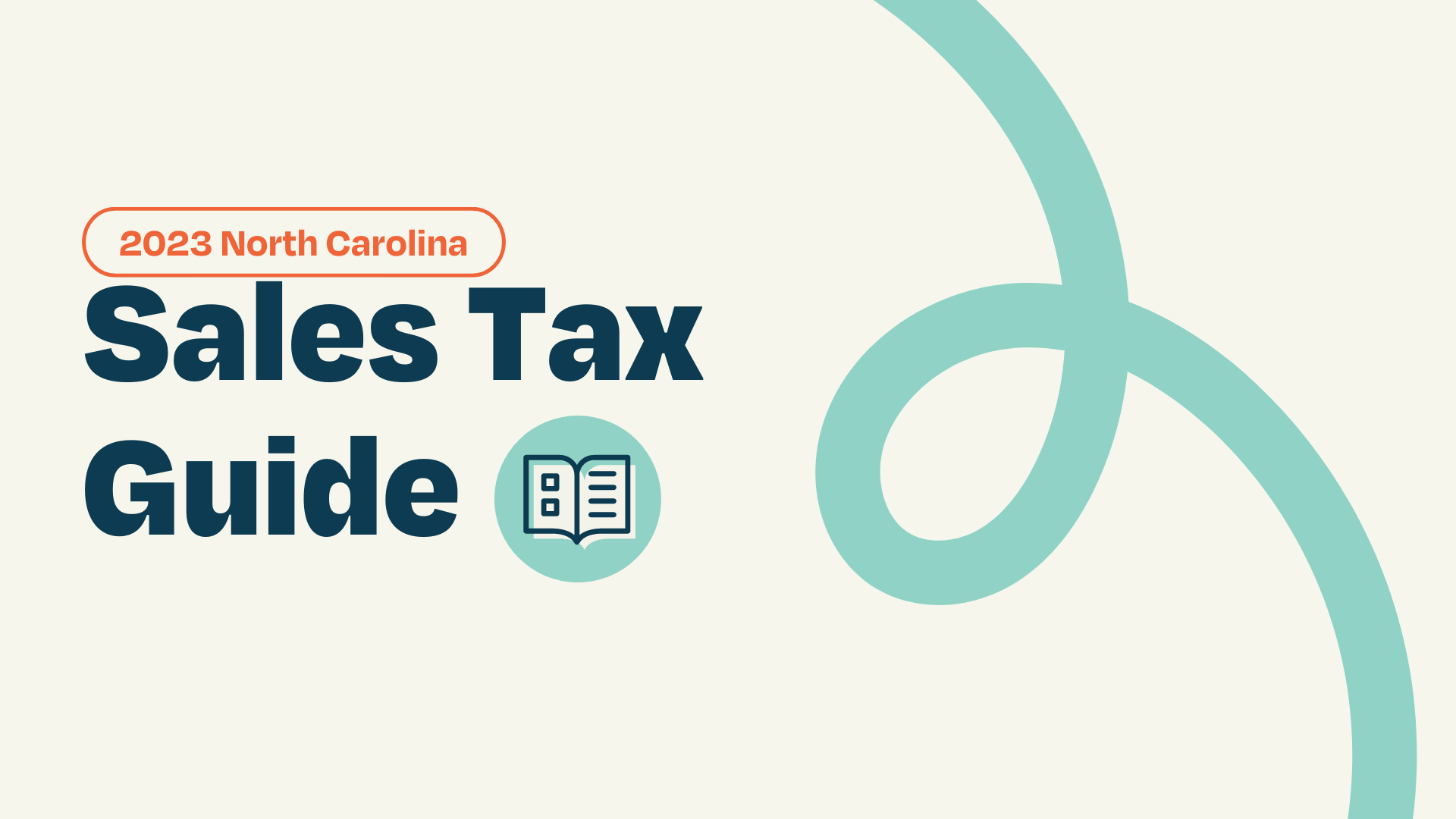1 min read
Economic Nexus by State: A Comprehensive Guide
As businesses continue to expand their online presence, understanding the implications of economic nexus has become increasingly important. Economic...

Ahoy there, fellow business voyagers! As we set sail on the choppy seas of taxation, we know how easy it is to feel adrift. That's why we are here as your trusty shipmates, ready to guide you through the swirling vortex that is Washington sales tax.
Whether you're trying to figure out if you have nexus in Washington, need help registering, or are navigating the treacherous waters of collecting and paying sales tax, we've got you covered. And because we want you to safely reach your destination, we'll also share our top 5 tips to avoid common mistakes when filing your Washington sales tax returns.
So, climb aboard, grab your compass, and let's chart a course for success!
|
Table of Contents |
Ah, the first step in our journey! If you're new to the world of sales tax, you might feel like you're stepping into an uncharted wilderness. No worries! We know just the right guides to help you out
The agency responsible for managing the sales tax in Washington is the Washington State Department of Revenue (DOR). They're the mapmakers, the trailblazers who set the rules and regulations for sales tax in the state. They're like the friendly park rangers of the taxation forest—always ready to help you make sense of the paths and pitfalls.
Here's how you can reach them:
|
Phone Numbers |
1-800-647-7706 |
|
|
|
|
Website |
Remember, reaching out to the right people is the first step in successfully navigating the labyrinth of sales tax. And with the Accountingprose as your guide, you're well on your way to mastering the maze!
Are you wondering if you're playing in Washington's tax ballpark? Well, let's find out! The concept of "nexus" is like an invisible tie binding your business to a state, bringing it under its tax jurisdiction. It's the taxman's way of saying, "Hey, you're playing in my yard, so you've got to follow my rules." But what exactly creates this nexus in Washington? Let's break it down.
Just like a mystery novel, nexus has many plot twists. It can be created in several ways, each with its unique set of clues and triggers. Buckle up, detective, as we unfold this mystery!
Physical nexus is like leaving your footprints in the Washington sand. If your business has any physical presence in the state—like an office, a warehouse, or even a traveling salesperson—it creates a physical nexus. It's like saying, "I was here!" to the tax authorities.
Economic nexus is all about the money. If your business makes over $100,000 in sales or has 200 separate transactions in Washington within a calendar year, it creates an economic nexus. It's like hitting a sales jackpot that rings the tax bell!
Affiliate nexus is like a family reunion where everyone gets a tax invite. If your business has a link to another business in Washington—like a subsidiary, a parent company, or even an affiliate—it creates an affiliate nexus. It's as if the tax authorities are saying, "You're all in this together!"
Click-through nexus is the digital footprint of the tax world. If your business makes a sale through a referral link from a website based in Washington, it creates a click-through nexus. It's like a virtual "Eureka!" for the taxman.
Marketplace nexus is like setting up a digital storefront on a third-party platform. If you sell your wares through a marketplace facilitator like Amazon or Etsy and they have nexus in Washington, guess what? You've got yourself a marketplace nexus. It's like the taxman saying, "Tag, you're it!"
You bet! Use tax in Washington is like a backup singer to the sales tax. If you bought something without paying sales tax—maybe from an out-of-state seller or during a trip abroad—you're required to pay a use tax instead. It's the taxman's way of saying, "Gotcha! No tax-free shopping on my watch."
So there you have it, the ins and outs of nexus in Washington. Remember, understanding your nexus status is like solving the first clue in the tax mystery. And with every clue solved, you're one step closer to becoming a tax sleuth.
Ready to tie the knot with Washington sales tax? Well, before you say "I do," you'll need to register your business for a sales tax license. It's like getting a ticket to the big tax dance. But how do you go about it, you ask?
Let's walk down this aisle together!
So, you've decided to take the plunge and register for a Washington sales tax license. Good for you! This is a crucial step in your tax journey, and we're here to guide you every step of the way. Think of us as your tax wedding planners, helping you navigate the something borrowed and something blue of tax registration.
First up, you'll need to fill out a Business License Application (BLA) online through the Washington State Department of Revenue's MyDOR system. This is like sending your official RSVP to the tax party. The form will ask for details about your business—such as your business structure, contact information, estimated monthly sales, and more. It's like introducing your business to the tax authorities, so make sure to make a good impression!
Once you've filled out the form, you'll need to pay an application fee (more on that in a moment), and then submit your application. It's like dropping off your wedding invitation in the mailbox. Then, all you have to do is wait for the DOR to process your application. This usually takes about 2 weeks, but could take longer during peak times. It's like waiting for the RSVP to your tax dance to arrive.
When your application is approved, you'll receive a Unified Business Identifier (UBI) number and a sales tax endorsement. This is like getting your official dance card for the tax party. With these in hand, you're all set to start collecting sales tax in Washington!
Registering for a Washington sales tax license comes with a small price tag. There's a $19 fee for the Business License Application, and a $5 fee for each sales tax endorsement. It's like buying your ticket to the tax dance. Remember, this is a small investment in your business's future success!
Yes, you do. Your Federal Tax ID Number or Employer Identification Number (EIN) is like your business's social security number. It's your unique identifier in the world of taxes. You'll need this number to register for your Washington sales tax license. So, make sure you've got your EIN handy when you fill out your application!
Depending on your business type and location, you might need to register with additional agencies in Washington. This could include the Washington Secretary of State if you're forming a corporation or LLC, or your local city or county for a business license or permit. It's like sending out additional invites to your tax dance. Remember, each agency has its own rules and requirements, so make sure to do your homework!
And there you have it, your guide to saying "I do" to Washington sales tax. Remember, registering for a sales tax license is like taking your first steps on the tax dance floor. With us as your guide, you'll be twirling and spinning like a pro in no time!
Embarking on the journey of collecting sales tax in Washington can feel a bit like exploring the vast and varied landscapes of the Evergreen State. From the bustling tech hubs of Seattle to the tranquil apple orchards of Wenatchee, each business must navigate its own unique path. Let's chart that course together!
Just like Seattle's iconic Space Needle points to the sky, Washington's sales tax points to the destination. That's right, Washington is a destination-based sales tax state. This means the rate is determined by the location of the buyer, not the seller. So, whether you're selling handmade crafts in Spokane or software in Seattle, the sales tax collected depends on where your customer is located.
In Washington, most tangible personal property and some services are subject to sales tax. It's like a coffee shop charging tax on everything from your cappuccino to the live music performance. This includes retail sales of items like furniture, clothing, and electronics, as well as labor and services related to construction and home improvement.
The question of whether SaaS is taxed in Washington can be as complex as a multi-layered coffee order. As of the current law, yes, digital products including digital automated services (which SaaS falls under) are generally subject to sales tax in Washington. So, if you're serving up software solutions, be sure to add sales tax to the bill.
Just as a coffee shop might offer a discount on refills, Washington offers certain exemptions from sales tax. These exemptions include certain types of groceries, prescription drugs, and personal services (such as haircuts). Specific industries, like manufacturing or agriculture, also have exemptions for certain purchases or operations.
Sales tax exemptions in Washington are typically available to certain businesses, organizations, and individuals. This can be as selective as a barista choosing the perfect coffee beans. For example, nonprofit organizations, farmers, and manufacturers might qualify for exemptions, as well as some individuals like the disabled and the elderly.
If you have a customer who is exempt from sales tax, it's like serving a cup of joe on the house. You'll need to collect a completed exemption certificate from them to keep in your records. This certificate is a document that proves the customer's eligibility for the tax exemption.
Losing a Washington sales tax exemption certificate can feel like spilling a fresh cup of coffee - frustrating, but not the end of the world. If you lose a certificate, ask the customer to provide a new one. If that's not possible, you may be held responsible for the sales tax on the transaction. It's best to keep all certificates well organized and stored to avoid this potential hiccup.
Navigating the world of sales tax collection in Washington can be complex, but with careful preparation, you can brew up a successful strategy. Remember, when in doubt, consult with a professional. Just like a skilled barista, they have the expertise to guide you through the process. Happy tax collecting!
Just as the Seattle Space Needle pierces the sky, filing and paying your sales taxes in Washington is a soaring endeavor that demands your attention. Let's climb this summit together, and soon you'll be admiring the view from the top!
Washington, like any good coffeehouse, serves up its sales tax deadlines steaming hot and on a consistent schedule.
The frequency of your filing is determined by the volume of your sales, with the state's Department of Revenue putting businesses into one of three categories: monthly, quarterly, or annually.
|
Monthly Filing |
If a business's average monthly tax liability is $100 or more, they must file sales tax monthly. |
Due on the 25th of the month following the reporting period. |
|
Quarterly Filing |
If a business's average monthly tax liability is less than $100, but they have more than $28,000 in gross proceeds of sales, gross income, or value of products in a calendar year, they must file sales tax quarterly. |
Due on the 25th of the month following the end of the quarter. |
|
Annual Filing |
If a business's average monthly tax liability is less than $100 and they have less than $28,000 in gross proceeds of sales, gross income, or value of products in a calendar year, they must file sales tax annually.
|
Due on January 25th of the following year. |
Sometimes a sales tax deadline can be as elusive as a Sasquatch sighting, especially when it falls on a weekend or a public holiday. But don't worry, Washington has you covered. If your filing date falls on such a day, you're given a grace period till the next business day. So, breathe easy and enjoy your weekend hikes!
Filing a Washington Sales Tax Return is like brewing the perfect cup of coffee—it might seem complex, but with the right steps, anyone can master it.
Gather Your Materials: Just as you'd gather your coffee beans and water, you'll need to assemble your sales data. This includes total sales, taxable sales, and the amount of sales tax collected. Make sure your numbers are as accurate as the weight of coffee beans for your morning brew.
Login to MyDOR: This is the platform you'll use to file your taxes. It's like your personal barista, ready to help you brew the perfect tax return. If you haven't registered already, make sure to do so.
Fill Out Your Sales Tax Return: This is where the magic happens. Just as you'd carefully pour water over your coffee grounds, you'll need to input your sales data carefully into the form. Double-check your numbers—accuracy is as important in tax filing as it is in coffee brewing!
Submit Your Return and Payment: Once you've filled out your return, it's time to submit it, along with your payment. This is the satisfying final step, like savoring that first sip of your morning coffee. Remember, even if you didn't collect any sales tax during the period, you still need to file a "zero dollar return."
Keep Records: Just as you might jot down notes about your favorite coffee brews, you'll need to keep records of your tax filings. Washington State law requires you to keep records for at least five years. It's like a coffee journal, but for taxes!
Like a coffee spill on a crisp white shirt, penalties for late sales tax filing can put a damper on your day. Washington imposes a penalty of 9% for a delay of up to 30 days, 19% for 31-60 days, and 29% for a delay exceeding 60 days. Ouch! That's a hotter penalty than a scalding cup of joe! So it's best to file your sales tax on time.
Yes, indeed! Washington, like a friendly barista, offers a few sales tax incentives. For example, there are exemptions available for certain types of businesses, such as manufacturing, research and development, and agriculture. It's like getting a free shot of espresso in your latte! So, make sure to do your research or consult with a tax professional to take full advantage of these incentives.
Sailing through the sales tax filing process can feel like navigating through the misty San Juan Islands. Here are five navigational beacons to help you avoid the common pitfalls and ensure smooth sailing!
Don't Procrastinate: Just like Seattle's infamous rush hour traffic, waiting until the last minute to file your sales tax return can lead to unnecessary stress and potential errors. Start preparing your return well before the due date to give yourself enough time to gather all necessary information, fill in the details accurately, and review the return for any potential errors.
Accurate Record Keeping: Maintaining accurate sales records is like keeping your compass calibrated. It's crucial for filling out your return correctly. Be meticulous in recording your total sales, taxable sales, and the amount of sales tax collected each month. These records should be kept for at least five years, as per Washington State law.
File Even if You Had No Sales: Even if you had a month quieter than a hushed conversation in the Seattle Public Library, you still need to file a sales tax return. A "zero dollar return" is still a return. It's like showing up even when there's no book club meeting - your presence is noted and appreciated.
Understand Tax Rates: Washington has destination-based sales tax, which means the tax rate depends on the location of the buyer, not the seller. It's as diverse as Washington's landscape, from the high peaks of the Cascades to the low tide flats of Puget Sound. Use the Department of Revenue's sales tax calculator to ensure you're applying the correct rate.
Take Advantage of Incentives: Washington offers several tax incentives, like a perfectly packed picnic basket for a day at Mount Rainier. Don't leave any goodies behind! Research and understand the exemptions and incentives that apply to your business to ensure you're not paying more tax than you need to.
Navigating the choppy waters of sales tax filing can be tricky, but with these beacons to guide you, you'll be steering clear of common mistakes and sailing into smoother waters in no time!
Navigating the terrain of sales tax filing in Washington State might initially feel like a trek up Mount Rainier. But with the right tools and a steady pace, you'll find yourself at the summit in no time, savoring the view of a job well done. Remember, every successful journey begins with a single step, or in this case, a well-organized ledger.
From understanding when and how to file, to avoiding common mistakes, and grasping the potential consequences of errors, we hope this guide has brewed up a strong cup of confidence for you. And remember, Washington's tax incentives are like the whipped cream on your mocha—there to be enjoyed, so don't let them go to waste!
As with any great coffee recipe, precision and attention to detail are key. If you're ever unsure, don't hesitate to seek help from a professional. After all, even the best baristas sometimes need a helping hand.
At Accountingprose, we're here to support you in your business journey, every step of the way, ensuring your sales tax filing process is as smooth as your favorite latte. So here's to mastering the art of sales tax filing, one return at a time!
|
Alaska Sales Tax Guide (N/A) |
||||
|
Montana Sales Tax Guide (NA) |
||||
|
Oregon Sales Tax Guide (N/A) |
||||
|
Delaware Sales Tax Guide (N/A) |
||||
|
New Hampshire Sales Tax Guide (NA) |
||||
And don't forget to check out our blog about Economic Nexus, which serves as an invaluable resource for businesses who have sales that are subject to sales tax.
This blog is for informational purposes only and the information is accurate as of 2023-06-19. If you want legal advice on sales tax law for your business, please contact a State and Local Tax (SALT) professional. Keep in mind that sales tax regulations and laws are subject to change at any time. While we strive to keep our blog current, this blog possibly may be out of date by the time you review it.

1 min read
As businesses continue to expand their online presence, understanding the implications of economic nexus has become increasingly important. Economic...

South Carolina Sales Tax in a Word Welcome, fellow adventurers! Are you ready to navigate the exciting waters of South Carolina sales tax? I...

1 min read
North Carolina Sales Tax in a Word As a small business owner, navigating the world of sales tax can feel like a rollercoaster ride. One moment...